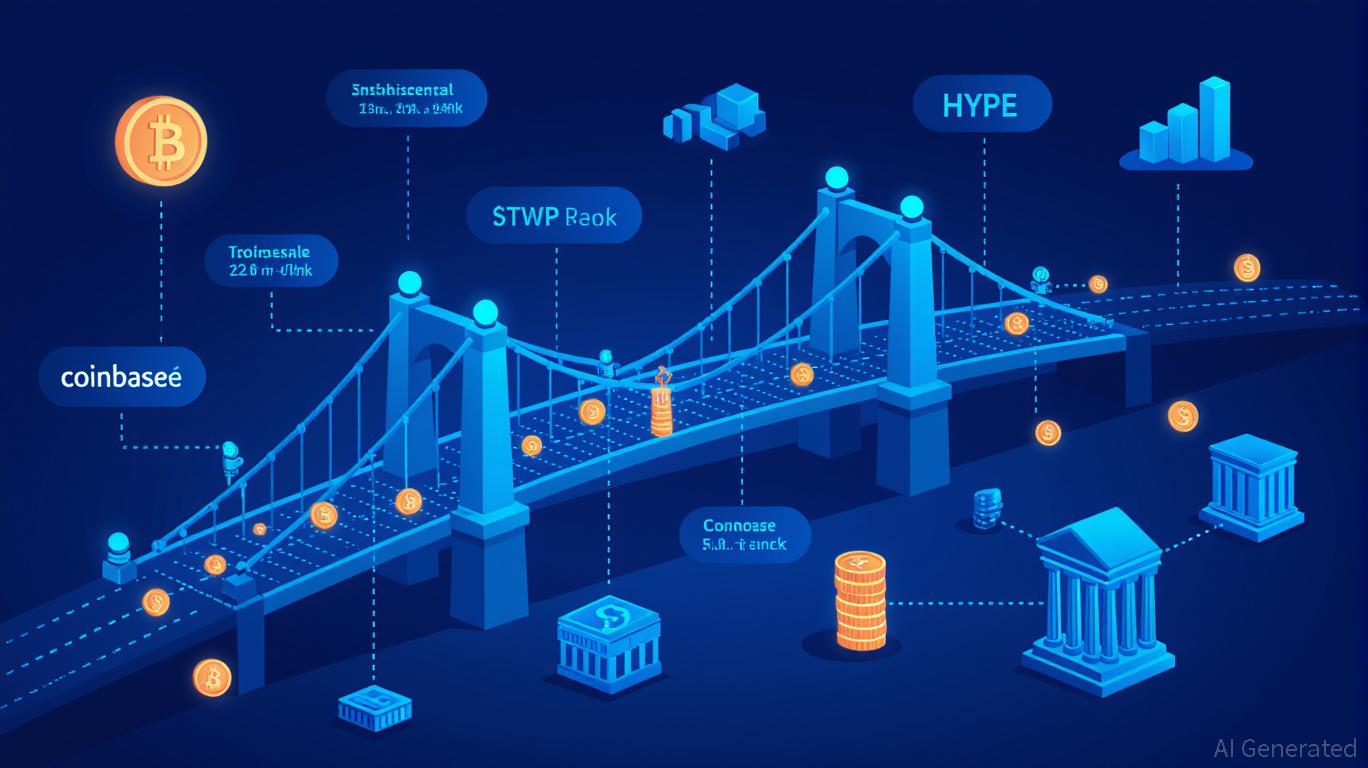Crypto's Challenge of Innovation: Is It Possible to Balance Privacy with Regulatory Requirements?
- a16z urges U.S. Treasury to exempt decentralized stablecoins from GENIUS Act, arguing current rules stifle innovation and misalign with real illicit finance risks. - The firm promotes decentralized identity and zero-knowledge proofs as privacy-preserving compliance tools, aligning with crypto developers and privacy advocates. - Senate's bipartisan crypto bill mirrors a16z's decentralization focus, proposing CFTC-led oversight and self-custody provisions to reshape regulatory frameworks. - Critics warn ex
The GENIUS Act, a legislative proposal from the U.S. Treasury designed to update stablecoin oversight, has sparked significant discussion around privacy and innovation in the digital finance sector. Venture capital powerhouse Andreessen Horowitz (a16z) has taken a prominent stance, urging that decentralized stablecoins be exempt from the Act. The firm argues that the current regulatory approach could hinder technological progress without effectively tackling genuine illicit finance threats. In a letter dated November 4 to Treasury Secretary Scott Bessent, a16z requested that regulators make it clear the Act does not apply to decentralized stablecoins—those managed by autonomous smart contracts rather than a central authority,
A16z’s advocacy is part of a larger movement calling for regulations that prioritize user privacy. Michele Korver, who leads regulatory affairs at a16z, pointed to decentralized digital identity as a way to improve compliance while maintaining privacy. “Decentralized identity solutions give people control over their personal data, lower cybersecurity threats, and help avoid excessive surveillance,” Korver stated, supporting the use of zero-knowledge proofs for secure transaction verification,

Meanwhile, legislative initiatives in Congress highlight the evolving nature of crypto regulation. On November 10, the Senate Agriculture Committee introduced a bipartisan bill on crypto market structure, reflecting a16z’s focus on decentralization,
On the other hand, some critics warn that exempting decentralized stablecoins could make anti-money laundering (AML) enforcement more difficult. Treasury analysis indicates that less than 1% of blockchain transactions are illicit, but regulators remain cautious about the potential for untraceable assets to facilitate crime,
As the Treasury moves toward finalizing the GENIUS Act’s rules, the discussion around decentralized stablecoins highlights a broader policy challenge: encouraging innovation while maintaining financial security. With proposals from a16z and the Senate pushing for a more sophisticated approach, the U.S. could establish a regulatory path that balances these competing goals—though the final direction remains uncertain as lawmakers and industry stakeholders continue to debate.
Disclaimer: The content of this article solely reflects the author's opinion and does not represent the platform in any capacity. This article is not intended to serve as a reference for making investment decisions.
You may also like
Bitcoin News Today: Bitcoin’s HODL barrier encounters a challenge reminiscent of FTX as liquidations reach $1.1 billion
- Bitcoin tests $95k HODL wall amid $1.1B liquidations, echoing 2022 FTX crash volatility with $44.29M largest single loss. - Technical indicators show oversold RSI and potential death cross rebound, with analysts predicting $95k-$145k range for near-term reversal. - ETF flows reveal $524M Bitcoin inflow vs $1.07B Ethereum outflow, highlighting shifting institutional sentiment amid macro uncertainty. - U.S. regulatory progress through GENIUS/CLARITY Acts aims to clarify SEC-CFTC oversight, potentially boos

XRP News Today: XRP ETF Breaks Inflow Records While Bitcoin ETFs See $866M in Outflows
- Canary Capital's XRPC ETF shattered 2025 records with $245M inflows and $58.6M trading volume on debut, outperforming all other ETFs. - SEC-approved in-kind creation model enabled XRP token exchanges for shares, driving inflows exceeding real-time trading data. - XRPC surpassed Bitcoin ETFs like BlackRock's IBIT , fueled by XRP's retail following and post-Ripple regulatory wins. - XRP stabilized near $2.30 despite 8% 24-hour drop, while Bitcoin ETFs saw $866M outflows amid broader market weakness. - Regu
Ethereum Updates: India's Web3 Expansion—Digital Advertising, E-Commerce, and Blockchain Unite at IBW2025
- Bengaluru hosts IBW2025, India's largest Web3 conference, reinforcing its global digital innovation hub status. - India's digital ads show resilience: desktop web viewability (66%) exceeds global (63%) and APAC (61%) averages. - Meesho's asset-light e-commerce model targets 20% CAGR growth, aligning with Web3's decentralized infrastructure principles. - Intchains expands into Ethereum/PoS platforms, leveraging ETH holdings for yield while Kneat.com reports 33% YoY revenue growth. - Converging digital ads

Hyperliquid's Growing Influence in Crypto Trading: The Impact of Institutional Engagement on DeFi Evolution
- Hyperliquid drives DeFi mainstream adoption via institutional partnerships and a $2.15B TVL, including a HYPE token ETF application by 21Shares. - Regulatory compliance through zk-KYC and smart contract audits aligns with SEC/CFTC frameworks, accelerating institutional trust in DeFi protocols. - Zero-gas fee Layer 1 blockchain and $3T+ trading volumes position Hyperliquid as a scalable bridge between decentralized infrastructure and institutional capital. - Leadership transitions and 160% vault APYs high
